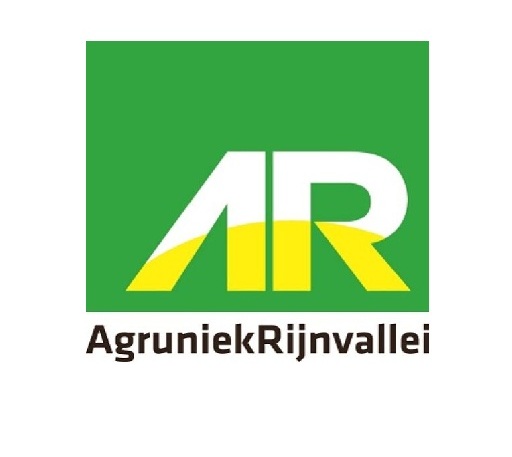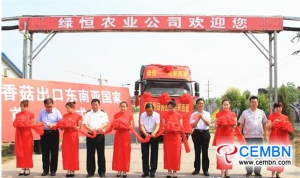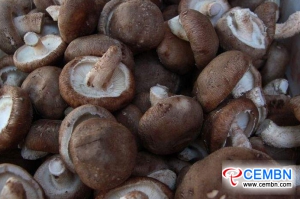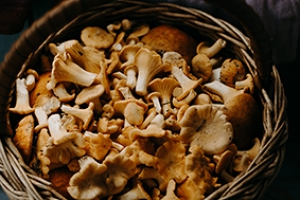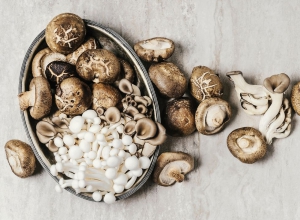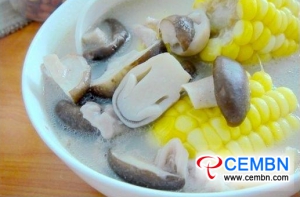
Mushroom Matter
Welcome on our platform. Why MUSHROOM MATTER? Because mushrooms play an important role in our lives as well in business. Our goal is to bring the world the very latest mushroom news with the upmost care to support the positioning of our beloved Mushroom.
Exactly two years and a day after the disastrous fire in BlueCity, rotterzwam opens its new oyster mushroom farm on May 24th, 2019. With a crowdfunding, the circular company raised almost € 400,000 last year. In the new farm, rotterzwam will convert 7,000 kilos of coffee grounds into oyster mushrooms for citizens of Rotterdam and the hospitality industry every month. Alderman Arno Bonte of Sustainability opens the farm.
The farm, located at Schiemond in Rotterdam-West, consists of old containers that have been converted into growing units. The concept is modular, mobile and scalable. As a result, rotterzwam gives a boost to the circular economy in the Netherlands with this new farming concept.
Urban environment
The growing units contain a modular and sustainable climate system, which is fully optimized for mushroom cultivation. These units, which are especially suitable for an urban environment, are a place where local residual flows can be converted into food.
CO2 negative
There are 152 solar panels on the roof of the farm that are expected to provide the full energy requirement. This means that the farm will become energy neutral. But rotterzwam would not be rotterzwam if it doesn't go a step further. Siemen Cox: "The processed substrate that remains after the growth process of the oyster mushrooms is returned to the soil. As a result, we expect to be CO2 negative within the next two years." The organization fixes more CO2 in the soil than the total business process emits.
The new rotterzwam mushroom farm is unique. This is because it is the largest mushroom farm in Europe, which grows mushrooms on self-made substrate from local coffee grounds, and will also be energy neutral and CO2 negative.
Worldwide
Mark Slegers explains: "It is our dream that every city in the world has a mushroom farm that converts the many coffee grounds from that city into oyster mushrooms. The modular farming concept can therefore also be purchased from us. To support this vision, we have chosen partners who can help place these mobile mushroom units anywhere in the world. "
For more information on this great project and company, please visit their website www.rotterzwam.nl.
Animation new mushroom farm please check the here!
Just in time delivery
A sentence often heard in logistical companies but even more nowadays in mushroom growing.
Due to short schedules, labour management and supermarket requirements timing in the growing of mushrooms is essential.
If mushrooms are not in time one can loose part of a flush. The compost for the next room is ordered. Supermarkets need the mushrooms on the shelf on a set time and for the organisation of the picking force a strict timing is needed. Even if it is just to stay away from picking in the weekends to avoid high labour costs.
To ensure a right start of the first flush on the desired time many factors are involved.
The activity of the compost is one of them. An active compost or an inactive compost can easily make a difference of a few days in the start of the first flush. A corrective measure there can be supplementing. And for all the choice of supplement and the quantity. Especially in combination with the right type of casing soil this has great influence. No need to say that both compost and casing soil need to have a good stability. The combination of those two can be seen in the amount of caccing and the deepness of the casing layer.
Water on casing soil is the next determining factor. It is well known that water can stop the mycelium from growing. A factor that can be used to time flushes.
A very strong tool is the ruffling machine. By ruffling the grower can time flushes even more accurate. Generally ruffling is done between days 3 and 6 after casing the room. Later ruffling often also means a slower recovery because older mycelium has a slower re-start. Ruffling is done a lot by farms who have very strong time requirements by the supermarkets. A negative aspect of the ruffling can be that the staggering of the flushes is more difficult. But this can be overcome by changes in the climate setpoints during fructification.
So just looking at timing of crops, the grower has many options. Unfortunately this also means enough options to make mistakes but isn’t this what makes mushroom growing interesting?
Henk van Gerwen
Shanxi Lvheng Company: Shiitake mushroom cans were exported to Southeast Asia for the first time
On June, 17, grand ceremony regarding the export of Shiitake mushroom cans was held by Shanxi Lvheng Agriculture Company.
“We are the first enterprise engaging in processing and export of Shiitake mushroom and other agricultural products in Linfen City, Shanxi Province of China. By now, the first batch of Shiitake mushroom cans which weight 15.50 tons and value 227,200 USD have entered into Southeast Asia. And, the second batch of dried mushrooms which are about to be exported to Thailand, Vietnam and other countries are in tense arrangement,” introduces CEO of Shanxi Lvheng Agriculture Company warmly.
Over the years, Lvheng Company insists on the production and processing idea, and the development strategy of green, superior and safe, relies on its advantages and walks in the forefront on aspect of export of characteristic agricultural products. This time, Lvheng Company seizes the successful export of Shiitake mushroom cans as the great chance, further innovates its development philosophy, constantly expands the scale of export type so as to let more superior mushrooms and agricultural products go out of China.
Shandong Jining Market: Analysis of Mushroom Price
According to mushroom quotation provided by Shandong Jining Vegetable Wholesale Market, on June 11, Oyster mushroom, Pleurotus cornucopiae, Pleurotus nebrodensis, Button mushroom, White beech mushroom and Seafood mushroom are 6 varieties that show price rise.
1. Price of Oyster mushroom has risen from 3.6 to 4 CNY per kg, indicating 11% of increase range.
2. Price of Pleurotus cornucopiae has risen from 7 to 9 CNY per kg, indicating 29% of increase range.
3. Price of Pleurotus nebrodensis has risen from 20 to 22 CNY per kg, indicating 10% of increase range.
4. Price of Button mushroom has risen from 12 to 13 CNY per kg, indicating 8% of increase range.
5. Price of White beech mushroom has risen from 15 to 16.7 CNY per kg, indicating 11% of increase range.
6. Price of Seafood mushroom has risen from 7.5 to 9.2 CNY per kg, indicating 23% of increase range.
On the contrary, by June 11, Superior Shiitake mushroom, Straw mushroom, Pholiota nameko, Black fungus, King oyster mushroom and Enoki mushroom are 6 mushroom varieties that show price fall.
1. Price of Superior Shiitake mushroom has dropped from 17.6 to 16 CNY per kg, indicating 9% of decline range.
2. Price of Straw mushroom has dropped from 16 to 13 CNY per kg, indicating 19% of decline range.
3. Price of Pholiota nameko has dropped from 24 to 16 CNY per kg, indicating 33% of decline range.
4. Price of Black fungus has dropped from 12 to 8 CNY per kg, indicating 33% of decline range.
5. Price of King oyster mushroom has dropped from 6.5 to 6 CNY per kg, indicating 8% of decline range.
6. Price of Enoki mushroom has dropped from 5 to 3.5 CNY per kg, indicating 30% of decline range.
“Price of Shiitake mushroom, Auricularia polytricha, Hericium mushroom, Agrocybe cylindracea and Brown Shimeji mushroom is respectively at 10 CNY, 6 CNY, 24 CNY, 12 CNY and 13.3 CNY per kg,” introduces manager of Shandong Jining Vegetable Wholesale Market.
The global market for mushrooms has witnessed growth at an impressive pace in the past few years, chiefly owing to the vast rise in consumption of processed foods, rising consumer awareness about health benefits of mushrooms, and advancements in packaging technologies to increase shelf life of mushrooms. Owing to the vast rise in demand for processed food products and the increased consumption of brown mushrooms, the mushroom market is expected to present significant growth and investment opportunities for players operating in the market, especially in the Asia Pacific region.
To read full article click here
Source: Amazing Newspaper
What can't portobellos do?
Have you ever truly stopped to appreciate those little fungi peeking out from your spinach salad? You should — by eating more of them!
"Although white foods are often thought to be nutrient-poor, mushrooms are an exception," says Mitzi Dulan, RD, author of The Pinterest Diet. "They contain many minerals, like selenium, potassium, copper, iron and phosphorus, that are not often found in plant-derived foods."
Here are six reasons why mushrooms pack a powerful punch when it comes to improving your health.
To read the full article click here
Source: Lisa Mucahy - Good Housekeeping




